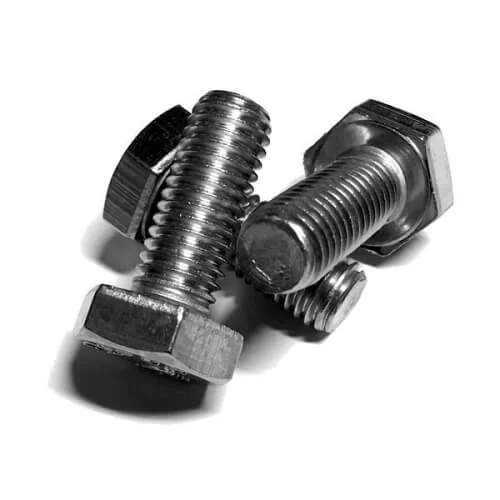Stainless steel bolts are a cornerstone of modern engineering, playing a pivotal role in industries ranging from construction to aerospace. Their unique properties, such as corrosion resistance and strength, make them a preferred choice for projects requiring durability and reliability. In this blog, we’ll explore why stainless steel bolts are essential and how they contribute to engineering innovation.
What Makes Stainless Steel Bolts Unique?
Stainless steel bolts are crafted from an alloy that includes iron, chromium, and often nickel or molybdenum. This composition gives them exceptional qualities, such as:
- Resistance to Corrosion: A protective chromium oxide layer prevents rust, even in harsh environments.
- Strength and Longevity: They withstand heavy loads and retain their integrity over time.
- Versatility: Suitable for diverse applications, from underwater pipelines to spacecraft.
Key Benefits of Stainless Steel Bolts
1. Corrosion Resistance
Corrosion is a common challenge in engineering, especially in environments exposed to moisture, chemicals, or saltwater. Stainless steel bolts excel in resisting corrosion, ensuring the longevity and safety of structures and machinery.
This makes them indispensable in:
- Marine construction
- Chemical processing plants
- Outdoor installations
2. High Tensile Strength
Modern engineering demands materials that can handle significant stress without failure. Stainless steel bolts offer high tensile strength, making them ideal for applications requiring robust fastening solutions.
They are frequently used in:
- Skyscraper construction
- Automotive assemblies
- Heavy equipment manufacturing
3. Resistance to Extreme Temperatures
Stainless steel bolts perform reliably under extreme heat or cold. They maintain their strength and do not become brittle, which is crucial in industries like:
- Aerospace
- Oil and gas exploration
- Power generation
4. Aesthetic and Hygienic Properties
The sleek appearance of stainless steel bolts enhances the visual appeal of exposed structures. Additionally, their non-porous surface is easy to clean, making them ideal for:
- Food processing equipment
- Medical devices
- Architectural projects
Types of Stainless Steel Bolts
1. Hex Bolts
Widely used in construction and machinery, hex bolts have a six-sided head for easy handling.
2. Flange Bolts
These bolts have a built-in washer for better load distribution and are used in automotive and machinery applications.
3. Anchor Bolts
Designed to secure structures to concrete, they are essential for foundational stability.
4. Eye Bolts
With a looped end, these bolts are ideal for lifting and rigging operations.
Applications of Stainless Steel Bolts in Modern Engineering
Stainless steel bolts are found in almost every engineering sector due to their reliability and performance. Here’s a closer look at some of their critical applications:
1. Construction and Infrastructure
Stainless steel bolts are used in bridges, tunnels, and skyscrapers for their strength and corrosion resistance. They ensure the safety and durability of large-scale structures.
2. Marine Engineering
Exposure to saltwater is highly corrosive to most metals, but stainless steel bolts resist rusting in such environments. They are used in ships, docks, and offshore platforms.
3. Automotive Industry
In vehicles, stainless steel bolts secure engines, frames, and other components. Their strength and durability make them reliable under high speeds and stress.
4. Aerospace
Stainless steel bolts are critical in aircraft, where both weight and strength are significant considerations. They perform reliably under extreme conditions in aviation and space exploration.
5. Renewable Energy
Wind turbines and solar panels rely on stainless steel bolts for stability and durability in outdoor environments.
Choosing the Right Stainless Steel Bolts
To get the best performance from stainless steel bolts, consider the following factors:
- Grade: Choose the grade that matches your project’s requirements. For example, 316 stainless steel is ideal for corrosive environments.
- Size and Threads: Ensure proper fit for secure fastening.
- Load Capacity: Verify the tensile strength to handle expected loads.
- Environmental Exposure: Consider the bolt’s resistance to temperature, moisture, or chemicals.
Why Engineers Prefer Stainless Steel Bolts
Innovation Meets Sustainability
Stainless steel bolts align with modern engineering’s focus on sustainability. They are fully recyclable, reducing environmental impact without compromising performance.
Dependability and Longevity
Engineers rely on stainless steel bolts for critical projects because of their proven reliability. Their ability to withstand environmental and mechanical stress ensures long-lasting performance.
Conclusion
Stainless steel bolts are more than just fasteners; they are essential components of modern engineering. Their unmatched properties, such as corrosion resistance, strength, and versatility, make them an invaluable asset in various industries. From skyscrapers to spacecraft, stainless steel bolts ensure safety, reliability, and sustainability.
If you’re planning a project that demands superior performance, stainless steel bolts should be your top choice. Invest in quality fasteners to secure a future built on strength and innovation.
